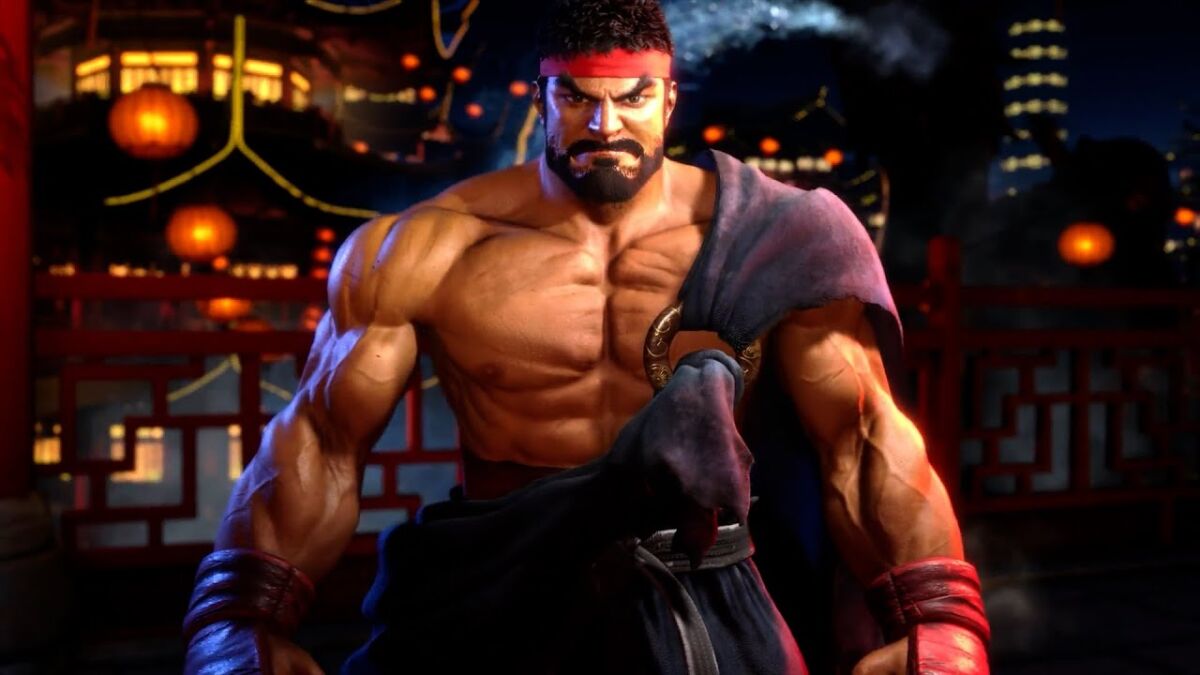Street Fighter is the brand that spring boarded the entire fighting game genre. While the first game fell under the radar, its sequel became an absolute phenomenon and inspired countless imitators and so many upgrades, sequels, and spinoffs. Afterwards, publisher Capcom released both a series of prequel games (Street Fighter Alpha) and a sequel game (Street Fighter III) to varying levels of success. And after a lengthy break, we finally got Street Fighter IV, which kickstarted a revival of the fighter genre that was followed by Street Fighter V.
Now we have Street Fighter 6, which takes the series to new heights with brand-new modes, mechanics, and other updates that are sure to influence the genre as a whole once again. And considering Capcom treated Street Fighter III like it was radioactive and gave it the Fast and the Furious: Tokyo Drift treatment by making every sequel a lead-up to it, this is actually the first chronologically new Street Fighter game since 1999! Street Fighter 6 really feels like a new beginning.
But now we’re looking back and ranking the Street Fighter games, although we need to set some ground rules since this is a particularly tricky franchise to rank, with all the update editions throughout the series and sequels within sequels. Therefore, we’ve chosen to lump every update edition together. Street Fighter V, Street Fighter V: Arcade Edition, and Street Fighter V: Champion Edition will be considered as one entry.
We’re also only counting games with “Street Fighter” in the title, no matter how many Street Fighter characters are playable in that Capcom crossover game you love. Apologies to the Capcom vs. SNK fans. No mobile games were considered, either.
Here’s our ranking of the Street Fighter series…
15. Street Fighter 2: The Interactive Movie
The one thing going for The Interactive Movie is that it’s a bonkers curiosity of a game. Taking the role of a Shadaloo Cyborg, it is your job to watch martial artists from the shadows and record their attacks. What that really means is that you are basically playing Pokemon Snap but while watching Street Fighter II: The Animated Movie. By taking pictures of the attacks, your cyborg gets stronger.
This all comes to a head in the finale, where you finally get to play Street Fighter! Well, one match anyway, using the Cyborg as a reskinned Ken in a fight with Ryu. The ending comes down to whether you win, lose, or get a perfect. So yes, the whole game is a single fight after having to pay attention to an hour-plus cutscene. A bizarre entry for sure, but not one that’s really worth trying outside of the novelty.
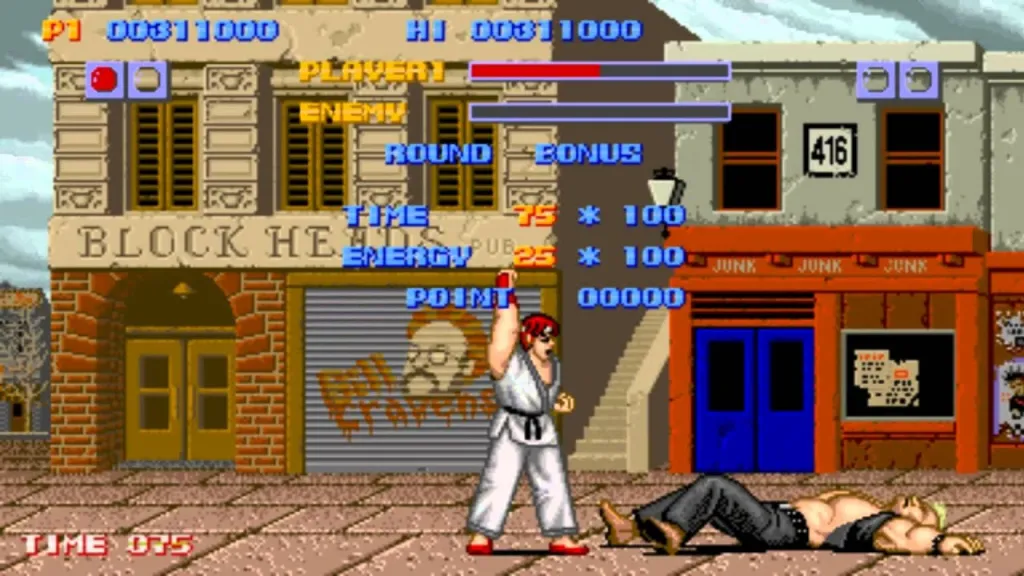
14. Street Fighter
Even after the success of Street Fighter II in 1994, Capcom did little to try to boost the profile of the original arcade game that started it all. There is a very good reason for that. While we would not have this series without the first Street Fighter, it’s still an awful video game.
The controls are shockingly bad and wrapped up in awkward mechanics. It’s frustrating that you’re stuck playing as either Ryu or Ken, who somehow end up playing exactly the same. The character designs are uninspired, to say the least. But there’s enough of a skeleton here to see how the original would eventually lead to Street Fighter II being such a classic. That’s the nicest thing we could possibly say about it.
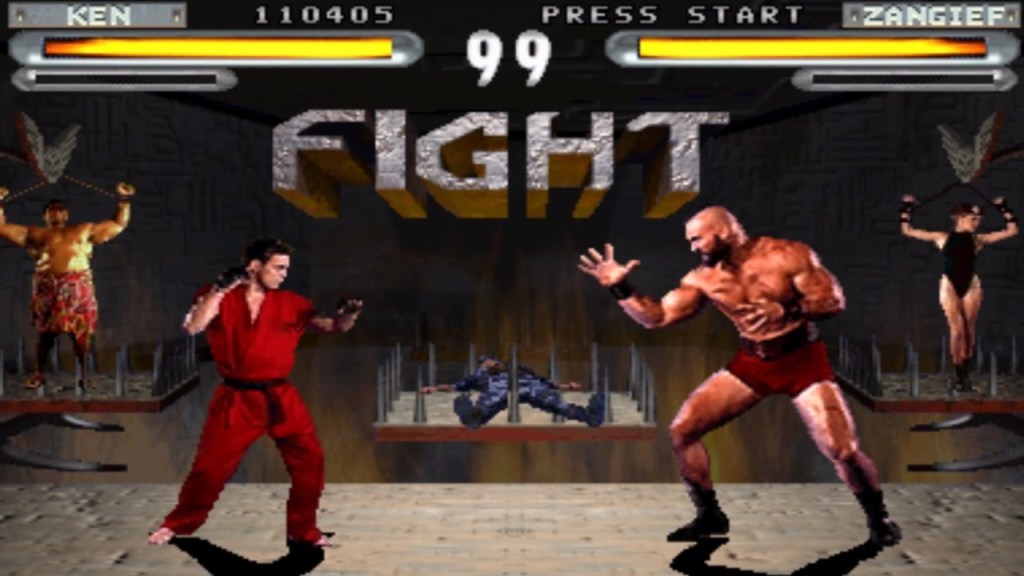
13. Street Fighter: The Movie
Street Fighter: The Movie never stood a chance to be anything but a punchline. Hollywood decided to adapt Street Fighter II into an action movie that felt more like a take on GI Joe. Then Capcom decided make a Street Fighter game using digitized versions of the movie’s actors, including Jean-Claude Van Damme as Guile. Yes, this is a game based on the movie based on the game.
It’s silly, but enjoyable enough, and one of the better Mortal Kombat ripoffs to ever come out. It doesn’t stand up to the games that inspired it, but there are worse ways to spend your time if you’re a fighting game fan. Want a fun mental exercise? Try to imagine what later Street Fighter characters would be like in this movie-to-game continuity. Envision Dolph Lundgren as Gill, complete with red and blue body paint.
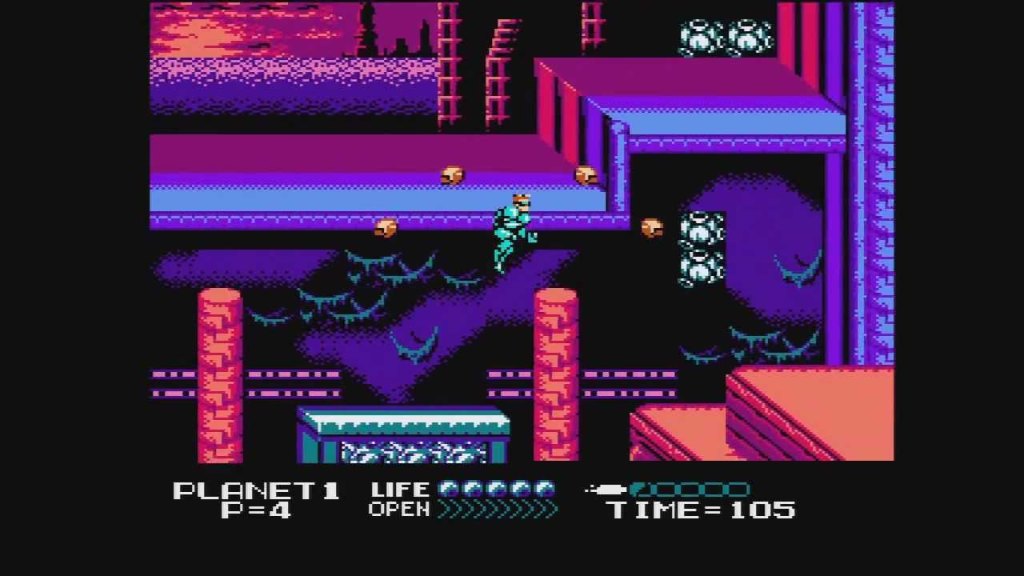
12. Street Fighter 2010: The Final Fight
This the black sheep of the Street Fighter franchise. At the very least, it is the Halloween 3: Season of the Witch of the series. Final Fight looks like Capcom had a neat little sci-fi action game for the NES on their hands and decided to throw “Street Fighter” into the title. The American localization even claimed that the hero was a futuristic, cyborg version of Ken Masters, just to drive the makeshift connection home. In the end, this side-scroller game has nothing to do with Street Fighter.
Still, the game has a lot going for it, from its variety of skills for Ken to some impressive 8-bit graphics and creative levels. It’s just all bogged down by an intense difficulty and, of course, the disappointment that this is a Street Fighter game in name only.
11. Marvel Super Heroes vs. Street Fighter
The origin of the Marvel vs. Capcom series really began with Akuma showing up in X-Men: Children of the Atom, which led to several follow-ups until Capcom launched its best-selling crossover fighting game series. Of all those games, Marvel Super Heroes vs. Street Fighter was easily the most forgettable. Outside of introducing assists and a couple of fun secret characters (Mecha Zangief, mainly), the only thing this one brings to the table is Norimaru, a joke character available only in Japan due to complicated rights issues.
Everything else is recycled, which is why all the secret characters are just recolored versions of existing fighters. Turning Blackheart red and renaming him “Mephisto?” That’s just lazy. It’s still a fun time considering it’s the classic Marvel tag system at play, but the roster and overall aesthetic of the game popped so much more when the Marvel side was strictly X-Men characters.
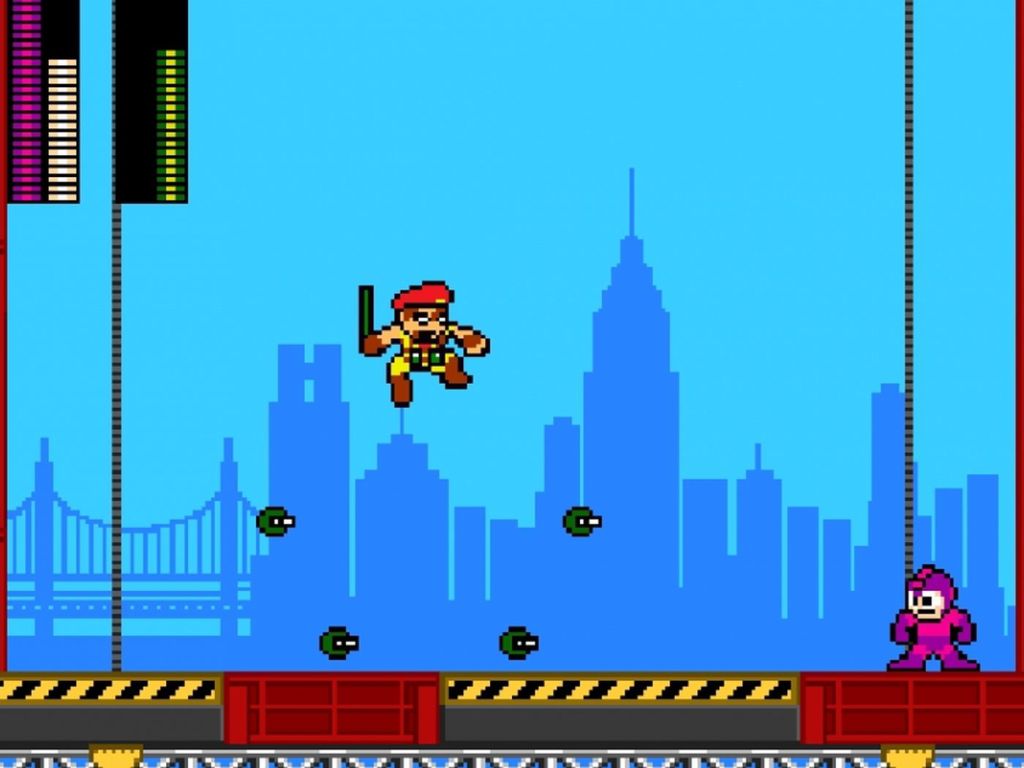
10. Street Fighter X Mega Man
Once upon a time, Capcom discovered a fan project that was so promising that they put their official stamp of approval on it and released it to the world for free. Hence we got an 8-bit Mega Man game with the gimmick that all of the Robot Masters were random Street Fighter characters. Ryu, Chun-Li, Rose, Urien, Blanka, Dhalsim, Crimson Viper, and Rolento each had their own stages with chiptune remixes of their themes. All of this would lead to fights against the Four Kings of Shadaloo and maybe a hidden battle against Akuma.
It’s a cute mashup of worlds with some level designs that are very hit-or-miss. Having Mega Man demonstrate his new weapons by attacking an 8-bit Dan Hibiki is also a nice touch. The bosses can be a handful, though, especially once you get to the classic boss rush at the end.
It might not be quite as good as the old Mega Man games, but the effort is certainly there.
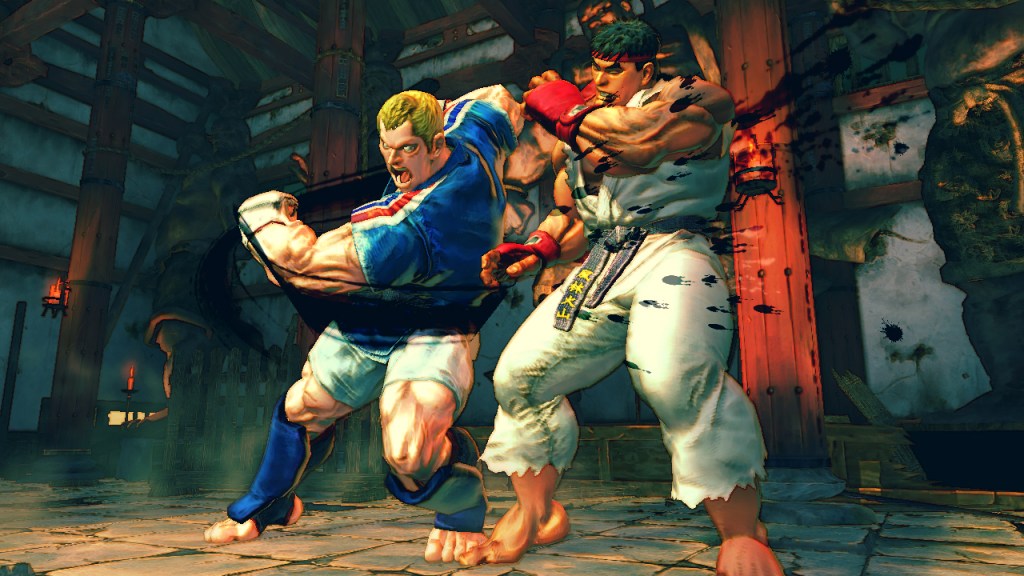
9. Street Fighter IV
It had been nine years since a major Street Fighter release and Capcom’s long streak of fighting games had ended with a whimper with 2004’s Capcom Fighting Evolution, but thankfully, Street Fighter IV arrived to revitalize the series. This sequel brought the mainline series to the world of 3D, but thankfully kept the classic 2D gameplay. Old characters were reintroduced with just a little more personality. As the game received updates, more fighters from the Alpha days and Street Fighter III were thrown in, making it feel like the one entry that linked all the eras together.
It’s an important game in terms of bringing Street Fighter to a new generation, but it doesn’t stand out much on its own. The Focus Attack and Ultra Combo gimmicks are fine, but nothing outright mind-blowing. Seth is the weakest of the Street Fighter big bads and the storyline around him feels a bit lazy. The game did its job, but lacks the staying power of its siblings.
8. Street Fighter EX
In 1996, developer Arika brought Street Fighter into the third dimension but with 2D gameplay. The result was a series of Street Fighter EX games, most of which were 1v1 fighters except EX3, which has a tag system. As the games gradually built up the roster over time, the Street Fighter cast was almost entirely from Street Fighter 2, except for fan-favorite Alpha heroine Sakura Kasugano. Otherwise, Arika introduced their own cast of characters, with some hitting harder than others.
These games had solid gameplay, but the art direction aged like milk. That EX3 released as PlayStation 2 launch title in the shape it did certainly did not do the series any favors. There was probably too much focus on the Arika-exclusive cast, but at least we got Guile, Blanka, and Vega in a time when Street Fighter games were skewing away from the classic cast.

7. X-Men vs. Street Fighter
While the Marvel and Capcom connection would grow stronger over time, this was when things started to get nuts in the best way for the publisher’s line of fighting games. This crossover between Street Fighter and the X-Men corner of Marvel is such a bizarre combination, but gives us stuff like Sabretooth and Dhalsim being constantly thrown together as an odd couple team, and the ridiculousness of Rogue being able to steal Akuma’s Raging Demon attack via kissing him. There’s also Magneto killing M. Bison and convincing his henchmen to join his mutant brotherhood.
This is also the first tag team game for Capcom, the cherry on top of a game that felt very fresh in the mid ’90s. Seeing Ryu go from throwing fireballs to full-on laser beams; having Chun-Li jump so high that the screen has to pan upwards; turning Apocalypse into a gigantic, gorgeous sprite; debuting Cammy’s brand-new Killer Bee appearance. This is not the best Marvel vs. Capcom entry, but it’s certainly one of the most innovative.
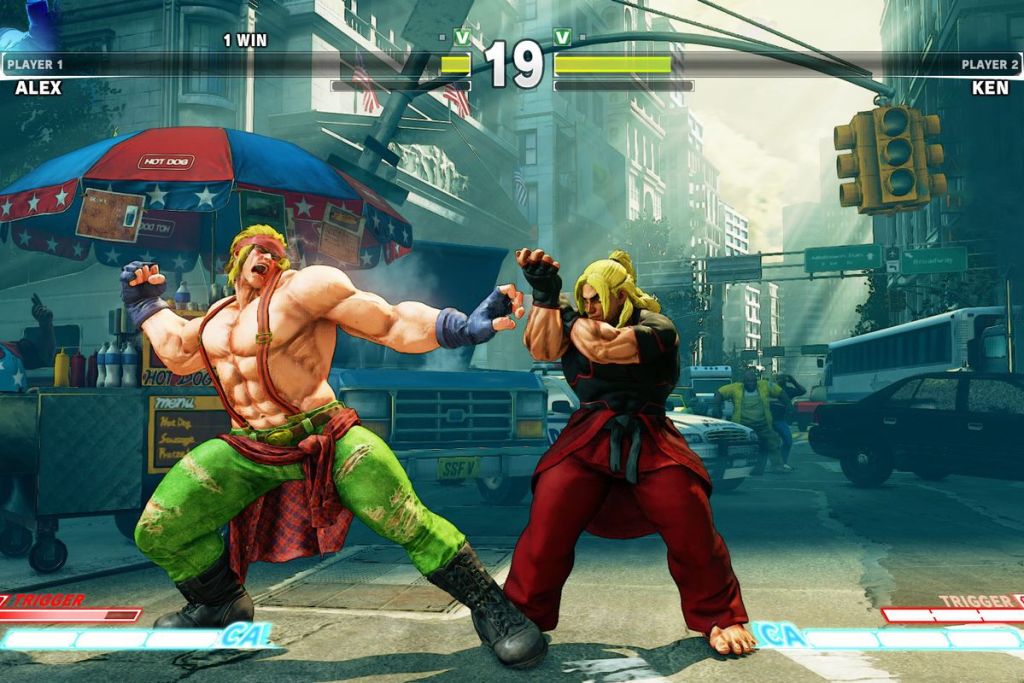
6. Street Fighter V
Street Fighter V has an extremely rough launch. The game released with a tiny roster of characters, no arcade mode, a laughable story mode, and endless online server issues. It was a disappointment, plain and simple. But gradually, the game improved, introducing new characters, stages, and other bells and whistles. It took years and a lot of DLC…but it got there. In its final days, Street Fighter V was a stellar fighting game.
The V-Gauge system helps the game stand out among the other entries and the concept felt stronger once the game started adding extra V-Trigger options and more unique fighters that complement the mechanic. Speaking of the fighters, there are some real winners in this group. They took old characters who didn’t show up in Street Fighter IV and put a new coat of paint on them like Birdie, Rainbow Mika, Urien, Gill, and Oro. Characters like Kolin, Zeku, and Ed – who only got cameo appearances in older games – became full-fledged fighters here, bringing a ton of personality to the game. They even took the mysterious Q from Street Fighter III: Third Strike and quasi-reintroduced him as G, the self-proclaimed President of Earth.
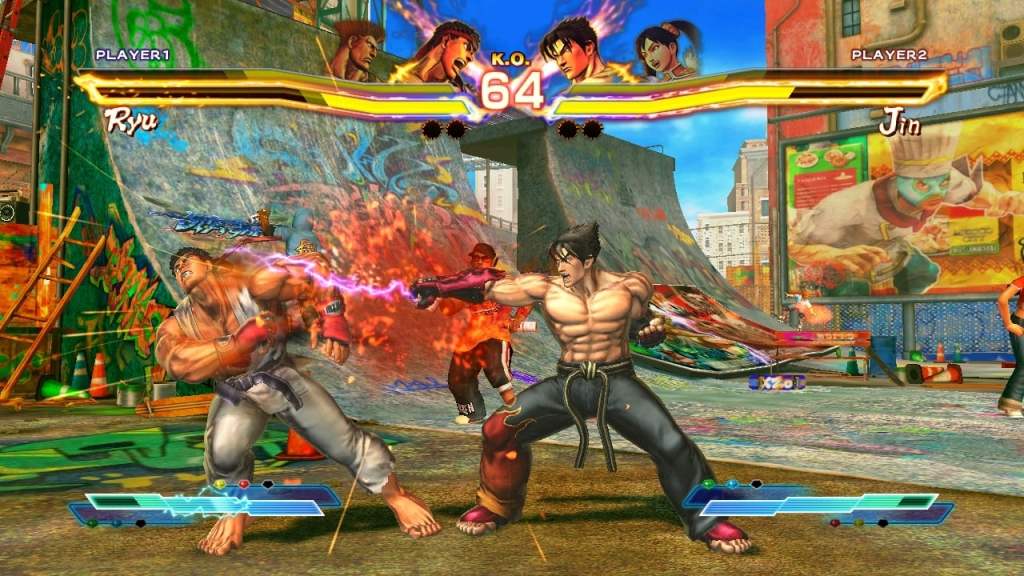
5. Street Fighter X Tekken
Much like Street Fighter V, Street Fighter X Tekken had a disastrous debut. There was DLC involving its gem system that came off as a “pay to win” scheme. Fights took too long and the Pandora mechanic simply did not stick. The 2013 patch update made the game a lot better, but it was too little too late for a lot of players, who had already written off the crossover and moved on.
While many of the game’s core ideas needed some work, it’s definitely a great evolution of Street Fighter IV’s foundation, turning it into a tag fighter and giving successful Capcom makeovers to so many Tekken characters. Oh, and also Ugly Box Art Mega Man, because why the hell not? We’re also fans of the game’s goofball storyline setup that turns things into It’s a Mad, Mad, Mad, Mad World with the casts of Street Fighter and Tekken. More Street Fighter games need Zangief and Rufus going on wacky adventures together.
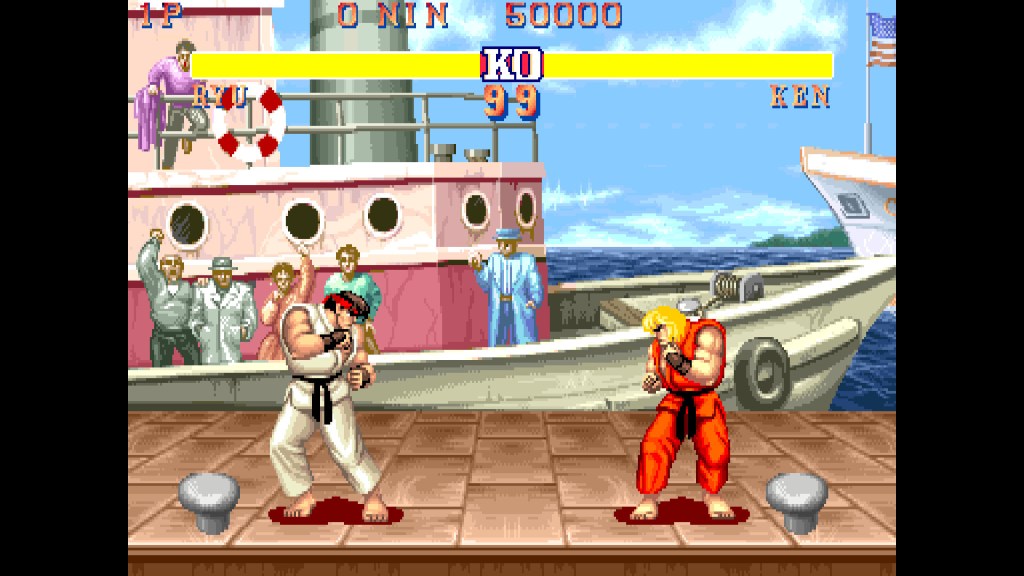
4. Street Fighter II
We can’t say enough about how groundbreaking and important Street Fighter II was to fighting games. While it did not invent the genre, it shot it straight into the stratosphere upon release. It was full-on quality from beginning to end, with a cast that was instantly memorable with no real duds. And Capcom continued to build on it for several years, which eventually led to the beauty that is Super Street Fighter II: Turbo, a total banger nearly 30 years later!
There are countless games that simply would not exist if not for a Chinese Interpol agent kicking the crap out of a car for absolutely no reason. It’s a classic in every sense of the word. That said, being the most important game does not automatically make it the best game. It has created an unbreakable base, but it’s led to other games that have improved on its design.
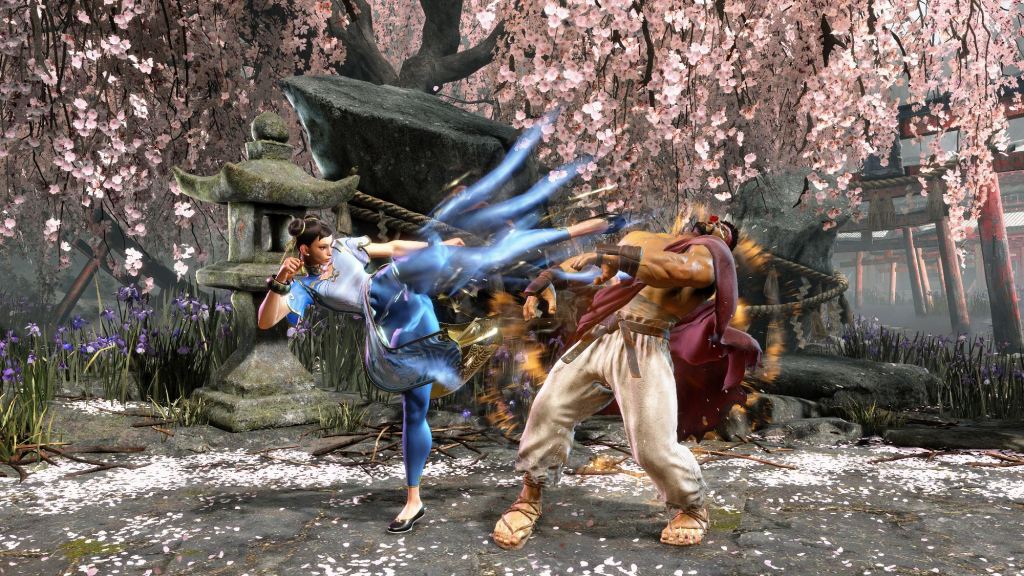
3. Street Fighter 6
This installment is difficult to rank because it’s so new. Unlike its predecessor and the Tekken crossover, this one landed the second it touched down. The gameplay kicks ass. The Drive system is a great addition to the formula. Getting text messages from Ryu in World Tour Mode is why we get out of bed in the morning. Blanka parries hits by twerking. This game has so much going for it and the sky’s the limit!
But…it is still early. The roster will grow over time, but the starting roster of 18 does feel a tiny bit lacking in this day and age. Very few of our favorites are in this game and who knows if they will ever show up. That said, this entry could easily be #1 in a year or so, but as it stands right now, we have to rate it as a fantastic start with limitless potential.
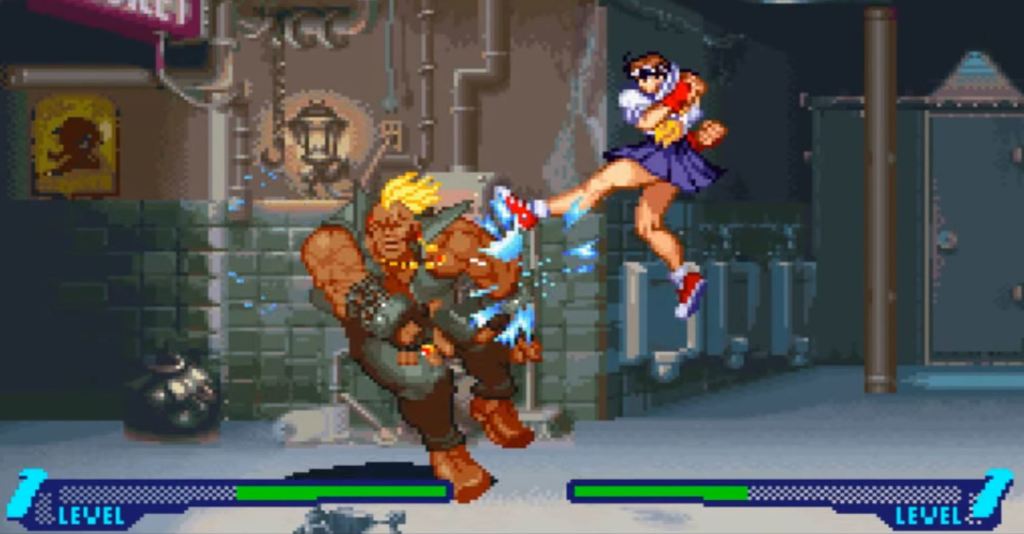
2. Street Fighter Alpha
After Capcom ran Street Fighter II into the ground, it was time to move forward. Or, uh, move backwards. Street Fighter Alpha was an in-betweenquel that bridged Ryu tearing Sagat’s chest open (SF1) and M. Bison’s World Warrior tournament (SF2). Everything had a more colorful and cartoonish look to it and there was a focus on world-building and stepping up the lore of the series. New fighters were introduced, younger versions of Street Fighter II folks were brought in, characters from Final Fight started to show up, and they even introduced Charlie Nash, the subject of Guile’s eventual vengeance.
Things got better with the sequels, especially with the home ports of Street Fighter Alpha 3 that kept introducing more and more characters. Soon the roster had completely absorbed Super Street Fighter II: Turbo lineup, while tossing in so many other names. Meanwhile, Capcom added so many variations on the gameplay that by Alpha 3’s release, the player could pick what kind of style (or “ism”) they wanted to use in matches.
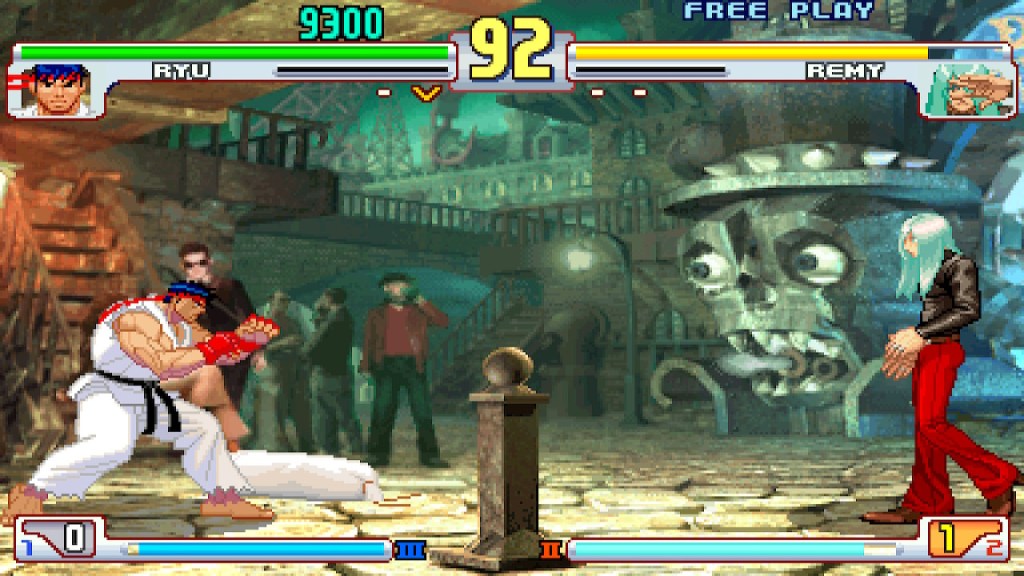
1. Street Fighter III
This arcade cabinet was a major flop when it arrived in 1997. The hardware for it was pricey. Like a Die Hard sequel, they decided to make it a Street Fighter game only after plenty of work had already been done on it. Because it wasn’t initially meant to be a new entry in the series, the cast of characters was mostly made up of unfamiliar newbies. The game also released during the peak of the 3D revolution, which meant the public was unimpressed in Street Fighter III‘s 2D sprites. This is all a shame, as once this installment received its Third Strike update, it was clear the franchise had reached its peak.
The sprite work is absolutely amazing, with brilliant gameplay and incredibly fluid animations. The music rules across the board. As far as we’re concerned, this has some of Street Fighter’s greatest character designs, such as Alex, Ibuki, Urien, and Q. The parry system is difficult to master but rewarding once you have. Many of the Street Fighter II sequels were about bringing the 1991 classic into the present day, but this is the one that truly felt like a major step forward.
